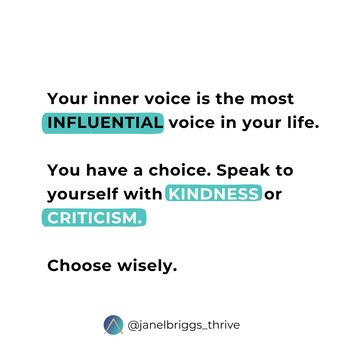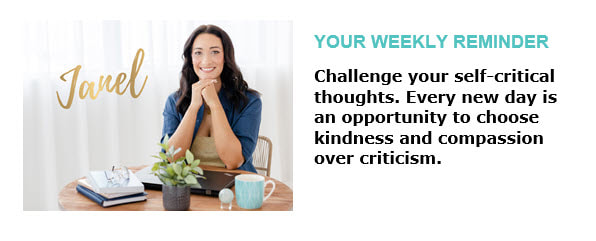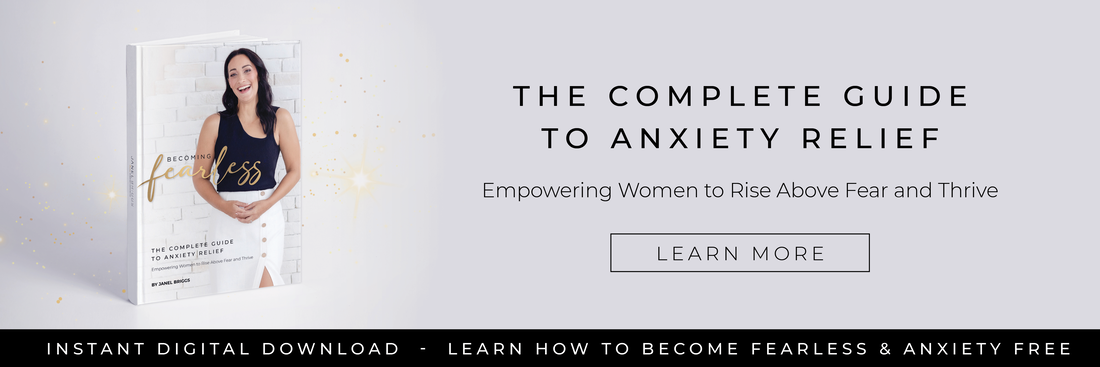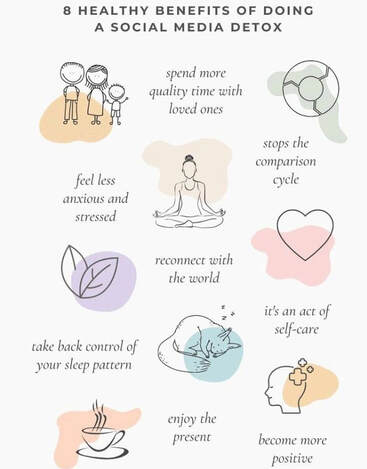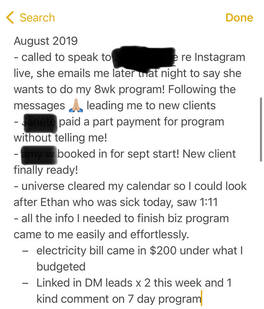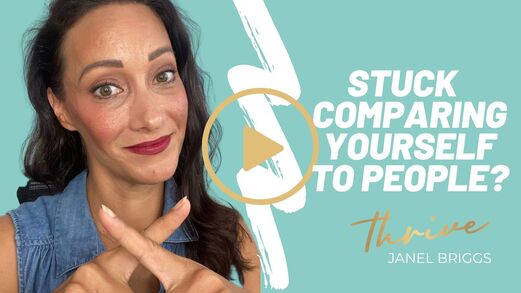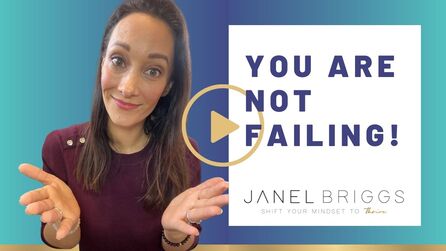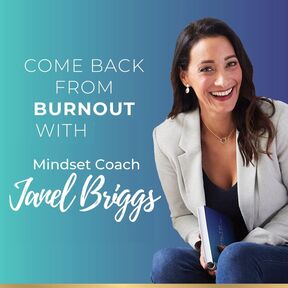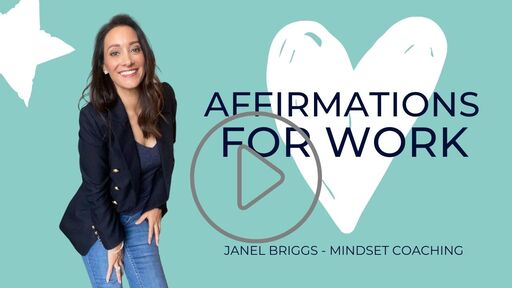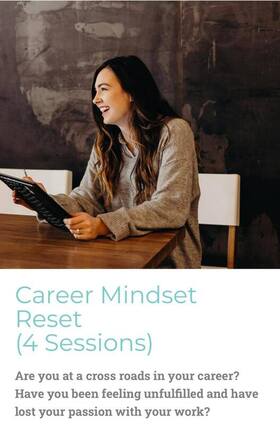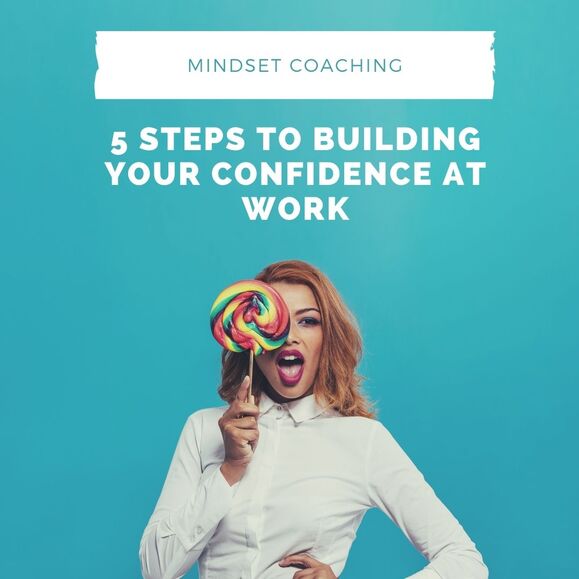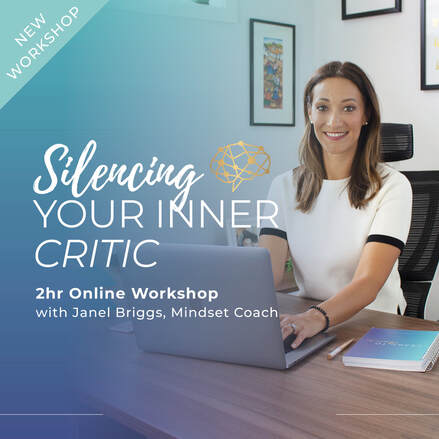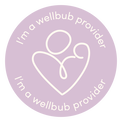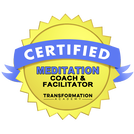AuthorJanel Briggs Categories
All
|
Back to Blog
Learning to Love Yourself Better12/4/2024 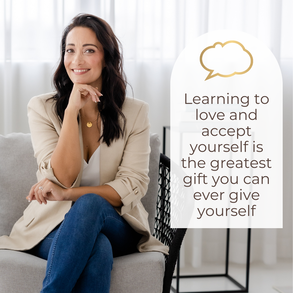 Learning to love and accept yourself is the greatest gift you’ll ever give yourself. It's better than that expensive designer bag on your wish list. Better than those new shoes you've been eyeing off. And yes, even better than the Euro summer vacation you're no doubt dreaming of! Problems and challenges don’t fix themselves by doing a geographical for 2 weeks or hitting the shops for a dose of retail therapy. After the dopamine hit is gone, and the holiday glow fades, you’re still stuck with the same thoughts, behaviours, and stress you had before. What I’ve come to understand on my journey as a coach is that self-love and acceptance doesn’t come easy for most women. We are our own worst critic. We are the first to blame, body shame, call ourselves stupid, useless, and much much worse. Growing up the concept of self-kindness wasn't always taught to us by the women in our circle, or by teachers at our schools. And sources like social media have become a minefield of judgement and comparison. However, self-love and acceptance are the two biggest foundations for a positive and fulfilling life!1) Loving yourself enables you to cultivate healthier relationships with others. When you know your own worth, you are less likely to seek validation from external sources and can form genuine connections based on mutual respect and understanding. 2) Self-love equips you with the resilience to bounce back from setbacks and challenges. You develop a deeper sense of self-trust and inner strength, allowing you to face difficulties with courage and grace. 3) By embracing self-acceptance, you free yourself from the trap of comparison and perfectionism. Your inner critic become less concerned with measuring up to others' standards and more focused on nurturing your unique strengths and qualities. But of course, the million-dollar question is… “If I was never taught how to love and accept myself, then where do I even begin?” ✨ Start by becoming aware of your critical thoughts, feelings, and self-talk ✨ Commit to treating yourself with the same kindness and understanding that you would offer to a close friend ✨ When you walk past that mirror – what would you say to your bestie? Would you ridicule her and tear her down OR would you show her compassion and pump up her tires? You always have a choice; you can continue the path you’ve been on and keep get the same results. Or you can make a change and BE the source of love and acceptance in your own life. About the Author: Janel Briggs is an Author, Mindset Coach, Practitioner of NLP and Timeline Therapy on a mission to support women across the world in overcoming their anxiety - personal insecurities and professional fears - to build unwavering confidence and self-belief. Mindset Coaching aims to help you fearlessly elevate your life and career, and more importantly the relationship you have with yourself! Connect with Janel on social media via Linkedin or Instagram.
0 Comments
read more
Back to Blog
Escaping the Trap of a Lack Mindset19/6/2023 Do you ever catch yourself fixating on what is lacking in your life?  All the things you don't have... all the things that aren't going well for you? "I don't have enough X (money, time, friends) Why can't I have a new X (job, relationship, car, house, handbag, etc) like so-and-so?!?! I never get the X (good opportunities, promotions, luck)" Leaving you feeling unfulfilled, and on a constant churn of stress while pushing and striving for more? It's easy to fall into the trap of longing for all that we don't have. I've certainly done it. Too busy looking over someone else's fence at what they're doing, instead of focusing on being present in my own backyard. We live in a world that often emphasises comparison and scarcity; Social media is a huge trigger. If you've been wondering, how to get out of this lack mindset and feel good about your life, you probably don't realise that you have a few things within your control today, that can help you shift your mindset. Even if you stay in exactly the same position you are in. Here 's how to get started: 1) Cut Down Social MediaIf you are following accounts that make you feel "ick" after scrolling, then mute these accounts for 30 days. See if you missed the content?? If you did, then go back to it and re-test how you feel after a break. If you didn't miss it at all, and you noticed a positive shift ... then unfollow the account. Social media's general purpose is for connection and entertainment. If you're not feeling those things, then you won't miss anything that was good for you! (original source unknown, found Instagram @itssarahbryant) 2) GratitudeI know, I know... everyone talks about gratitude. But that's because it works! Science tells us that when you shift your focus to appreciate what you already have, you'll feel MORE content. "I am grateful for... " Write down 3 things you are grateful for every day, on paper, in a journal, or your phone. I've even had a client who prefers to voice note her gratitude while she walks in the morning! Love it. A few years ago I read a phenomenal book by Louise Hay, called “You can Heal Your Life”. Louise is the grandmother of self-help books and the queen of affirmations and gratitude. One chapter in the book was really transformation for me. Louise talked about her own feelings of lack around money, and fear of her finances. To combat this anxiety and overwhelm she use a small shift in language that had a huge impact. Each and every time a bill arrived in her mailbox; she would BLESS THE BILL and say: "Thank you for the money in my account to pay for this bill. I appreciate this bill, knowing I have the funds to pay for it." And, somehow she would find the money to pay for the bill, without stress. Wow, what a concept! Even reading this - how different does that feel? 3) Celebrate
We also usually are not comparing apples with apples. We get stuck looking at other people’s success and comparing our apple experience with their orange experience! It just doesn’t make sense. Celebrate your big and small steps. “I am proud of myself for … “
Look around you right now. Where are you sitting? What do you already have around you right now? Little moments happen every day that are proof that you are on your way to abundance, look for them and celebrate those moments. 5 years ago, I used to DREAM of the coaching business I have now! Imagine if I had of given up … because I got stuck in comparison and lack? There was healing, learning and growth I needed in order to become the Coach I am today. It was all worth it! Author Gabby Berstein in her book Super Attractor has this wonderful concept she uses for celebrating and focusing on abundance. It’s called “Gathering Twigs”. You create a list on your phone and every time you have a win, something good happens, or there is a sign that shows you that you are on the right track, you write it down. I did this FOR YEARS. And it works. Anytime I felt lack or comparison, I would start a new list. Looks like this:
Comparison and judgement lead to resentment. Resentment is like anger, it can be toxic and poisonous. It will eventually eat away at the container it is in. If you are walking down the street and notice a woman with great shoes, and immediately you feel envy - compliment her. Either out loud to her, or in your mind. Sounds like: “Wow, amazing shoes, I love them”. If you are scrolling social media and notice someone who is celebrating and achievement and you immediate feel less than, or upset that you don’t have what she has – celebrate her. Sounds like this: "Well done, that's amazing. Good for her getting that new (job, relationship, house xyz). I know I am on my way to getting that soon too." See how different it feel? Remember, your journey is unique. You can and you will get to where you want to be. Staying present in your life, focusing on gratitude and celebrating your accomplishments is how you will get there. All the best, JB
Back to Blog
Is your best work, or your next career move being robbed by fear and self-doubt? Have you ever felt like you aren’t capable, or haven’t earned the right to be in the position you are in? Do you worry about whether you are good enough? In the current business environment where supply chains are strained, inflationary pressures are present and many businesses are going through some sort of change and/or transformation, the need for new thinking and ideas is vital. These challenges can present a fantastic opportunity to show entrepreneurial spirit to solve today’s problems and make a difference. However, the current environment may also be creating additional stress and anxiety due to uncertainty, and the prevalence of burnout and imposter syndrome. A recent global study conducted by Asana, for the 2022 Anatomy of Work report, surveyed over 10,000 employees to learn what’s working and what’s not in organisations. According to this research nearly two-thirds (62%) of knowledge workers worldwide reported experiencing imposter syndrome in the last year, with 42% of employees experiencing both burnout and imposter syndrome at the same time. Imposter syndrome refers to an intense feeling of fraudulence when you doubt your abilities, accomplishments, or skills. The mind often fearing a moment when someone is going to call you out, realise you shouldn’t be there, or you’re not capable for the role. Even the highest of achievers and most confident and intelligent people can feel this way. It’s not defined by age, gender, or experience level. KPMG Women’s Leadership Summit Report found that as many as 75% of executive women report to having personally experienced Imposter Syndrome at certain points in their career. The study also discovered that 56% have been afraid the people around them will not believe they are as capable as expected. Why is this phenomenon so widespread? If we look at the global external environment since 2020, we’ve spent over 2 years surviving a pandemic, isolating, and pivoting to work from home environments. Asana’s report found that almost one quarter of workers experienced burnout four or more times in the last year, and 40% of all workers think burnout is an inevitable part of success. Overwhelm from job uncertainty, increased workloads, and an experience of higher levels of anxiety due to the pandemic coupled with current inflation rates all impacting our daily lives. With a lack of connection to the workplace there are less opportunities to receive face to face feedback, read body language cues, and have open conversations to discuss challenges outside the zoom room. The mind can potentially have a field day analysing, overthinking, and rehashing every conversation and scenario of the workday. “Did I do enough? Was it good enough? What if I wasn’t on point? What will they think of me? Why was I not invited to that meeting? What if I don’t have the capabilities anymore? Will I lose my job?” The mind is a powerful tool but in some cases self-doubt and fear breed without external validation and connection. “With fewer opportunities to connect and celebrate success, remote work is intensifying impostor syndrome. Organizations should ensure that work is still being recognized and championed in remote environments on a daily basis, and that new hires have support structures in place to instil confidence.” —DR. SAHAR YOUSEF, COGNITIVE NEUROSCIENTIST, UC BERKELEY (Source Asana) Imposter syndrome is not incurable; you can become fearless by learning how to cultivate a growth mindset shifting your thinking when flooded with fear-based thoughts and feelings of incompetence. Coaching and training have been found to be two positive solutions to overcoming this fear. In a study done to evaluate the effectiveness of interventions for reducing the imposter phenomenon results reveal that coaching was an effective mindset intervention for sustainably reducing imposter phenomenon scores. Coaching improved self-enhancing attributions and self-efficacy and reduced the tendency to cover up errors as well as the fear of negative evaluation. Training was superior in regard to knowledge acquisition. (Zanchetta et al. 2020). Becoming fearless first begins with acknowledging when imposter feelings show up, then refraining from allowing the fears to hold you back or derail you from taking action. Here are 4 steps to guide you when facing imposter syndrome: 1. Recognise when the feelings arise, awareness always proceeds change. 2. Identify the specific fear or doubt you are feeling. “What specifically am I afraid of here?” or “What is causing me to feel this way?” 3. Review the facts; feelings are not facts. “When did I decide that I am not capable of (X)” or “Where is the proof this person thinks (X) about me?” 4. Reframe the thought process, using the power of positive language.
It can be very unsettling to discover that you’re experiencing imposter syndrome. Given the stigma around this topic, many people might feel like they just have to push through and suffer in silence. You don’t, and the real story is in how you face the fear to rebuild your self-belief. Connection and opening conversations at work are also key. You might even be surprised when you share your experience and people understand exactly what you are going through. Don’t let fear hold you back from your dreams and goals. Schedule a free consultation with me to learn more about what I can do for you, and how mindset coaching can help you, to overcome imposter syndrome. JB.  About the Author: Janel Briggs is a NLP and Timeline Therapy Practitioner on a mission to support women across Australia and Singapore in healing their professional anxieties, insecurities and imposter syndrome to build unwavering confidence and self-belief. The goal is to level up your life and career by learning how to to live fearless and anxiety free! Connect with Janel on social media via Linkedin or Instagram. Click here to learn more about this life changing opportunity.
Back to Blog
It's easy to be stuck in comparison. It's easy to look at the people around us and think that they must have it better. More money or a better job, or a more fulfilling life than we do. But what if I told you that when you compare, you lose. When we compare ourselves to others, we are benchmarking our personal outcome on someone else’s game plan, and hand over our power to the ego. That's why it's so important for us not only to understand how comparison works but also learn how we can overcome its negative effects on our lives. Be careful of what you compare yourself to. Why is comparison usually a losing game? When we compare, we're focused on what is lacking in our lives instead of celebrating what is present. We don't have enough money; they have more money. We don't have the same job title or position as someone else; they do. We don't have the same qualities as someone; they are more interesting, attractive or funny. This thought process leads to whittling away our self-worth, instead of creating a mindset that celebrates our unique qualities and finds happiness in what we already have. Comparison also leads to judgement, setting up an impossible standard by which we judge others against ourselves and other. Judgement is the king of separation and the biggest killer of connection. When you judge someone maybe you’ll come out feeling better about yourself in the judgement stakes this time, and give yourself a shot of confidence boost. But the ego can never be content, it always wants more. Next time you are bound to feel worse and this comparison will not bring you true self-belief or contentment. That’s takes inner work. “The best way to stop feeling that I’m not good enough is to stop comparing altogether.” - Courage to Change, AFGBelieve that you can achieve it, no matter how hard it seems. If you want to achieve your goals, it’s important to believe that you can do it. Believing in yourself, your abilities and having a laser focus on running your own race is the key to success. It’s easy for us all to fall into the trap of comparing ourselves with others and feeling like our outcomes aren’t as good as theirs. But remember: no two people have the same game plan or approach to achieving their life goals – they are unique, and so are you! Let go of any belief that you're not worthy of success. You are as capable of achieving success as anyone else in this world. You can and you will, you just need to shift your mindset and belief system. The only obstacle standing in your way is the belief that you aren't worthy or deserving of it, which causes all the self-doubt. The voice inside your head that says, "I'm not good enough" or "I don't deserve this." This may be news to you - that old voice is just a reflection of other people's doubts and fears, not yours! It takes a lot of courage to let go of those beliefs instead of comparing yourself to others who have already finished theirs. For shifting belief systems I am a firm believer in using positive affirmation statements. I have a list of over 150 affirmations as a free download on my website. You could begin with a statement like this: "I deserve success. I create a life that is full of abundance. I am worthy of these incredible opportunities." Remember why you're doing the things that you are doing in the first place. It's easy to get lost in the comparison game, but remember why you're doing the things that you are doing in the first place. You didn't choose a challenging workout or a new diet because it was fun, right? You're a high achiever because you love the challenge. Instead, these things are part of your journey toward something bigger—they are an essential part of reaching your goals. As Simon Sinek says "Always go back to reconnecting with your WHY." Instead of focusing on what others are doing and judging yourself based on their results, refocus on why you're putting in all this effort in the first place. Remind yourself of your purpose, this is often why people love creating vision boards to much. Having a visual representation of your personal goals keeps you on track to what is most important for you. This will help remind you not only where you want to go but also why it matters so much for you to get there. 4 Keys to Remember to Start Living a Happier Life (without comparison).
Ultimately when we compare ourselves with others too much, our goals seem further away and less important because there are other people who have already done it first, or better. But in reality no one can ever do it like you! Every journey is different—and yours will take exactly as long as it needs to take. The next time you feel like you're stuck in a rut, remember to look at what is really going on here. Are you comparing yourself to someone else? Or are you holding yourself back because of some belief that has been ingrained in your unconscious mind? If so, then it's time to take a step back and reevaluate what it means for success in your own life by focusing on what makes us different instead of trying hard enough to be exactly like everyone else.
Back to Blog
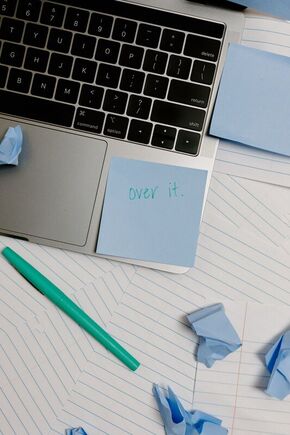 We all have limiting beliefs. They’re those pesky, damaging, and deeply ingrained thoughts that’ve been there for years. So long in fact that we’ve become convinced that they must be true. They’re not. Trust me. I’ve been there and come out the other side and want you too as well. So what are limiting beliefs? Where did them come from? And how can we get rid of them? Limiting beliefs reach across all aspects of your life. They’re thoughts or opinions that negatively impact your relationships, growth, and moving forward. They’re the little (or loud) voice saying… I’m not good enough, smart enough, pretty enough. I’m too loud, too much, too clumsy. I don’t deserve this. I could never do that. I know I’m going to fail. During my study of timeline therapy and Neuro Linguistics Programming (NLP) coaching certification, I came to understand, and now coach, that most of our core beliefs, or how we feel or what we think about ourselves, are language patterns and programming from childhood. They’re developed when we’re young from a particular moment (or moments) in time. Influenced by family, friends, culture, school, or society in general, someone said something, or you overheard something and, for better or for worse, you decided (consciously or unconsciously) to take on their opinion or label and carry it as your own. As your truth. You start believing what you heard. And over the months, years, and decades, the words become ingrained “truths” and limiting beliefs that end up adversely effecting and impacting your confidence, self-esteem, and self-belief. And as we humans tend to do, we remember these negatives much more than the positives, making so much easier to believe these un-truths. So now that we’ve talked about what limiting beliefs are and where they come from, let’s talk about two ways STOP and reverse these thought and beliefs about yourself. AFFIRM\NATIONS
Affirmation are essential in countering decades of negative programming, self-talk, and limiting beliefs. The three steps to using affirmations are personalisation, repetition, and trust. Personalisation Make sure your affirmations are specific and personalised to you. Start each statement with “I am…” and make sure they are ALWAYS positive. No won’ts, don’ts, or I’ll try’s. Think “I am brave” or “I am courageous”, not “I wish I was brave” or “I want to be courageous”. Repetition Repeat, repeat, repeat. Write your affirmation in your journal (you can get mine here). Record and listen to them on your phone. Put sticky notes up around your home. Write, read, and hear them often. Use the same affirmations day in and day out until you truly feel and believe each statement. Trust As difficult (and strange) as it might seem, you really do need to trust the affirmation process. While it won’t happen overnight, repeating your statements focuses the forces of energy to bring light to your desired result. Trust and believe good is coming your way and see the magic unfold. To help you get started, or continue on your affirmation journey, visit my website to download my free 150 Positive Affirmations list. DEEP (GUIDED) WORK While affirmations help you move forward, actually getting rid of limiting beliefs often takes deeper work. The key to this deep work however is doing it with guidance. Trying to “do the work” without guidance can be difficult, frustrating, and potentially upsetting. By having a safe space to discover your underlying limiting beliefs and be guided through a process to transform these into empowering new beliefs you become your own “inner mentor”, confident and able to go forward. So you’re not alone in the deeper work, I run a small and intimate “Silencing Your Inner Critic” group workshop every month. Together over zoom we work together for 2 hours from the comfort of your own home on:
Limiting beliefs are just that, limiting. While they’re familiar and known, they also tend to keep us surviving and not thriving. They keep us stuck in the past unable to make real progress forwards. Instead let’s get you thriving. Let’s get you working on reprograming your beliefs. Let me help you build unwavering self-belief and get rid of your limiting beliefs. If you haven’t already, be sure to subscribe to my blog and YouTube channel. Download your free 150 Positive Affirmation List or get on the wait list for my next Silencing Your Inner Critic online workshop so we can do the deep work together.
Back to Blog
You are NOT Failing!23/9/2021 Unable to be five steps ahead of everything and everyone. No longer having that focus and motivation for exercise and eating to take care of their body. The truth is... YOU ARE NOT FAILING. You are living through a pandemic - GROWING and EVOLVING every day.You are learning more about yourself and the people in your immediate world, than you probably ever have before. The intricate details of …
And, if you have the pleasure of home schooling like me add re-learning Grade 2 to that list (argh!). This is your reminder, that real life will still be there, after the pandemic. And so will your dreams and goals. The body you are unhappy with right now, can absolutely make a comeback. The job that you cannot stand, might feel different when your office returns or after a holiday (or maybe it’s the push for you to make a change). The relationship that is causing you frustration, will hopefully look different when we can have more room to breathe and external outlets. And that goal or achievement that you set a date for and missed, doesn’t mean the goal isn’t worthwhile! Zoom out and see the bigger picture, perhaps there has been more to learn on the way to that goal you want to so much? In my map of the world, there is NO failure. There is ONLY feedback. Notching your failures is what keeps you feeling stuck, literally reliving the past with your mindset fixed on “I failed - it will never happen”. Where as a growth mindset says “What I can learn from, I can change” which keeps you moving forward (and feels so much lighter doesn't it?!) What have you had to learn, grow, heal or fix this year….? Answer that first, and then shift your goal posts. So, how do you get unstuck?
Side note: I really hope that if you are reading this and still in lock down that the only goal you are setting for yourself right now is focused on your health and happiness! I know your world being on pause is frustrating, I feel it too. Let's be honest - NO ONE is really achieving right now! I don’t care what you are seeing on social media. Everyone is hurting from this pandemic. Everyone is just doing the best they can to survive and make it through. And if they are achieving then I have no doubt that something else has had to give. I am a firm believer that you can do anything, you just cannot do everything to 110% all at once without a ball dropping somewhere! Take care JB NEW! Burnout Recovery Program
Break the burnout cycle and start changing habits for long term well-being in 4 weeks!
Back to Blog
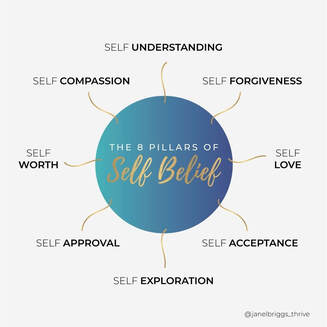 I had a client recently, who was struggling with imposter syndrome, can you relate? My client felt like she wasn't good enough for this role and her confidence had taken a hit after some disappointing feedback from a Manager she really liked. To be honest, her self-belief pillars were totally shaken. We worked through a short coaching program to rebuild her confidence by reconnecting her to the 8 underlying pillars of self-belief. Step 1 - We explored her genius zone, the way in which she does her best work, accepting and understanding her strengths and weaknesses The secret here is to list your strengths and weaknesses, and map it across to your work.
Step 2 - We outlined her values and she did a road map of her past career achievement, while redefining what her model of success looked like. The secret here is to identify what qualities are most important to you.
Step 3 - We explored her fears and found the root cause of it all was actually that she was frightfully scared of failure. We did a release technique in time line therapy to bust through her fear and we met it with forgiveness and acceptance. The secret here is to follow the fear.
Next, I suggested she use 5 x positive affirmations to help build confidence at work. A free tool anyone can use and start today. After just one session of getting really clear on who she was and what she wanted she saw her confidence start to return and her work anxiety lessen. That is the power of the mind! Ps. If you want to learn more about the 4-session coaching program I talk about in this blog you'll find it here -> CAREER MINDSET RESET
Back to Blog
Today’s blog is all about building confidence in the workplace and comes from a recent "Career Mindset Reset" session I had with one of my clients, who was looking for advice on how to feel more confident as she steps into a new role and organization. If you are struggling with confidence at work too - this is your lucky day! I break down my 5 steps to building your confidence at work, focusing on: time, skill, experience, reminders, and self-belief. 1. TIME Before you feel confident in anything you need time, you need a transition period as you learn and adapt to the role, figure out who’s who in the zoo, start building rapport with your colleagues and boss, and eventually settle into some kind of flow. You simply cannot expect to understand and know everything on day one, week one, or even month one. Learning and confidence takes time, so be kind and don’t rush yourself. Know that things take time, but you will absolutely get there. 2. SKILL If you're in a job, role or business where you don’t feel confident you probably have fears like:
In order to make you feel more confident and capable, first take a look and map out your skillset.
Now look at all of those amazing skills you probably didn’t even realise you had! Amazing isn’t it?! After mapping out your skillset, maybe you realise there are a couple of gaps. Yes? No problem!
Taking the time to map out your skills can help you see everything you already have to offer while also narrowing in on areas you might want some training or assistance with. 3. EXPERIENCE After time to adjust, and the getting to know your skills comes experience. You need experience and practice using your skills and skill sets, because there’s no way you’ll feel confident in something if you have no experience using that skill. You simply cannot expect to be confident and know what you're straight away, especially if it’s a relatively new or unpractised skill. Instead it takes trial and error, daily consistency, and sometimes failing or even sucking at things before you actually learn and have the experience necessary to build up your confidence. Take myself for example. I cringe at some my early mindset coaching videos, but I practiced and learned, and built up my experience so that now I produce better quality content that I’m extremely proud of. I have the experience of trial and error and reflection to feel confident in what I produce. It takes time to build experience, and that’s okay. People understand. And the more you do it and repeat the experiences you’ll build up that confidence. 4. REMINDERS I had a client come to me once and say, "I just don't feel experienced enough", to which I said, "How do you know you aren't? When did you decide? Is this your standard or someone else's?" The next thing I asked her was to create a career timeline and look back asking herself:
In doing this exercise there was a light bulb moment (there always is!) where she realised her lack of confidence was actually coming from her OWN mind. Seeing it in black and white she had the realisation that she’s already achieved so much and actually does have the skills and experience. She just needed to be reminded. 5. SELF-BELIEF Belief in yourself and your skills, abilities, and experience is my last tip in building confidence and helping you see that you ARE capable and anything IS possible. Like everything else, is takes practice to really get comfortable with self-belief, and positive affirmations can absolutely help with this. Writing affirmations in your journal, reading them to yourself, and saying them out loud every single day will 100% embed these positive affirmations into your mind and shift your mindset and confidence. Here a few to get you going:
If you're interested in exploring any of these confidence-boosting tips, I run a single two hour workshop called "Silencing Your Inner Critic" where I help women understand their major limitations and the power of self-belief. If you want to explore more check out my one-on-one coaching offering, comment below, or send me an email ([email protected]).
Back to Blog
The Truth About Anxiety...12/6/2020
|
|
Stay Connected
Subscribe and be the first to access new blog content news & updates. |

 RSS Feed
RSS Feed
